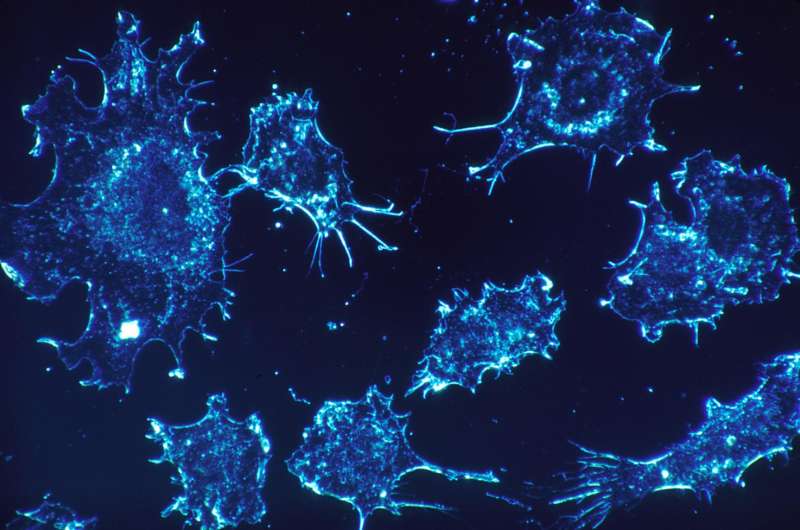New intestinal cancer treatment approach identified

A MedUni Vienna study group has identified a previously unknown mechanism involved in the development of intestinal cancer: The bacterial microbiome activates the so-called immune checkpoint Ido1 in Paneth cells, a special cell that is only found in the gastrointestinal tract, thereby preventing local intestinal inflammation. However, this also gives rise to immunosuppressed areas, in which intestinal tumors can develop. The Paneth cells are therefore a new cellular target for immune-based therapies against intestinal tumors. The study was recently published in the Nature journal Communications Biology.
Cancer cells have developed mechanisms that allow them to go undetected by the body's immune system and so avoid their destruction. These mechanisms restrict humoral and cell-mediated immune activity in the surrounding connective tissue (stroma) and make cancers resistant to treatment. Sensitizing cancer cells for an immune attack is therefore an important strategy in ensuring the success of immunotherapy techniques. However, little is yet known about the underlying mechanisms by which cancers escape the immune system.
Paneth cells are gland cells in the gastrointestinal area and support the division of intestinal stem cells. MedUni Vienna researchers, led by Robert Eferl from the Institute of Cancer Research (member of the Comprehensive Cancer Center CCC of MedUni Vienna and Vienna University Hospital) discovered that Paneth cells, which produce the enzyme Ido1 (indoleamine-2,3-dioxygenase-1), inhibit the action of the immune system against intestinal cancer in the stem cell area of intestinal crypts and tumors.
The researchers knocked-out the transcription factor Stat1 in intestinal epithelial cells of so-called ApcMin mice, which develop intestinal tumors due to a mutation in the Apc gene. The result was that they developed smaller and less aggressive tumors. Moreover, these tumors were infiltrated by immune cells that play a role in tumor defense. These included cytotoxic T lymphocytes.
The study group then studied these tumors in more detail using RNA sequencing and found that the Stat1-deficient tumors exhibit reduced expression of the Ido1 gene. Ido1 encodes an enzyme that produces the metabolite kynurenine. Kynurenine suppresses the immune response in the tumor, thereby promoting tumor growth.
Further studies have shown that ApcMin tumors with an intact Stat1 gene contain special cells that express Ido1. Similar cells were also discovered in human intestinal polyps. These cells were not present in the Stat1-deficient ApcMin tumors. Further characterisation revealed that these special cells are Paneth-like cells. Paneth cells are also found in the normal intestine, in the stem cell areas that are responsible for regeneration of the intestinal mucosa.
Ido1 expression in the Paneth cells is stimulated by interaction with the bacterial microbiome. Eferl explains: "According to our hypothesis, the bacterial microbiome induces the Ido1 immune checkpoint in the Paneth cells, thereby preventing local intestinal inflammation. However, this also gives rise to immunosuppressed areas, in which intestinal tumors can develop. Ido1-expressing Paneth cells are therefore a cellular target for immune-based therapies."
More information: Sandra Pflügler et al. IDO1+ Paneth cells promote immune escape of colorectal cancer, Communications Biology (2020). DOI: 10.1038/s42003-020-0989-y


















